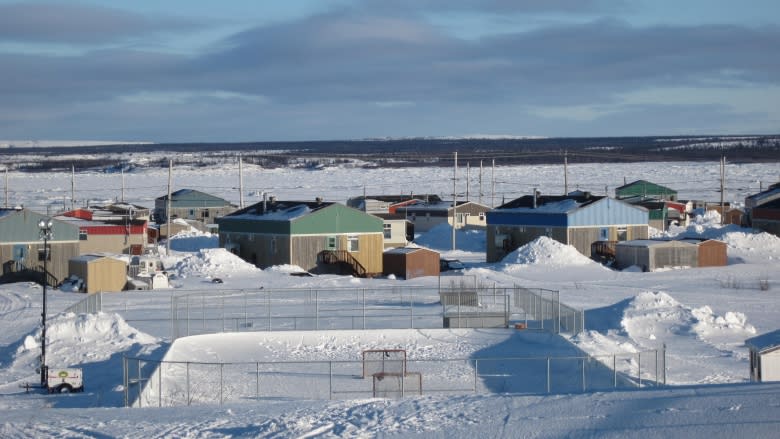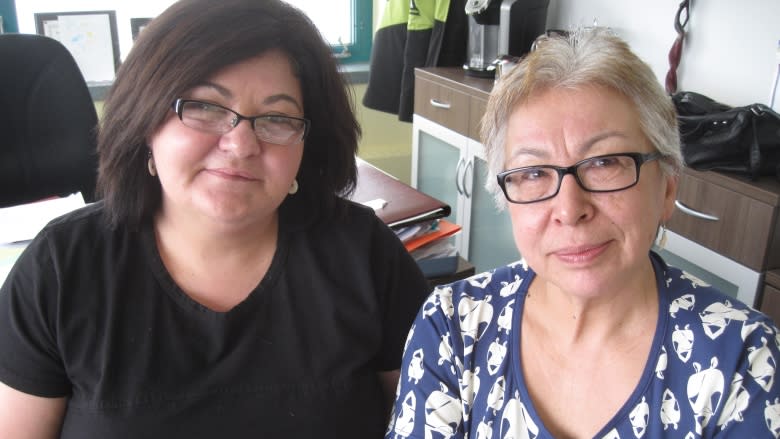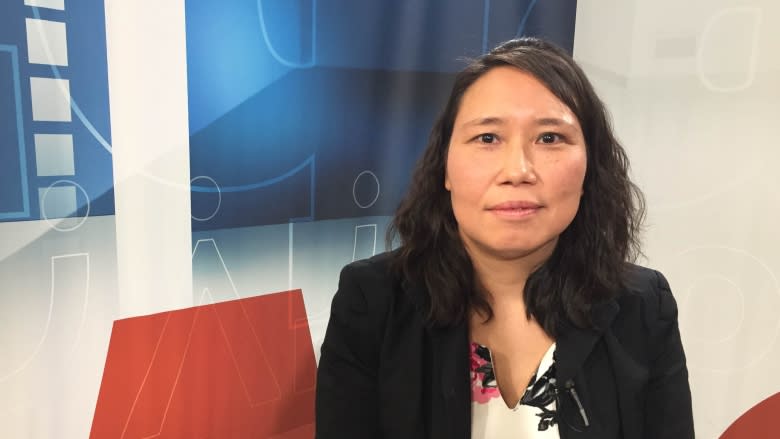Quebec's new custom adoption bill could fix ID issues for Inuit
Sunchild Deer-Okpik, also known as Jaaji, has spent the majority of his adult life trying to sort out issues with his identification — from passports to bank cards, they all bear different names.
Jaaji, a popular Inuktitut singer/songwriter, grew up in Quaqtaq, Nunavik, a town of about 250 people in Northern Quebec, after he was "more or less left on his grandparent's" doorstep as a baby. His teenaged mother was too young to care for him.
Like many other babies from Inuit communities, Jaaji's grandparents adopted him through a custom adoption system. While that system is formally recognized in Nunavut, it is not by Quebec law.
Earlier this month the Quebec government proposed changes to the province's adoption laws, which would lift the "total secrecy" around the process and formalize Inuit custom adoptions. It would also allow for the creation of a unique birth certificate that reflects a child's full lineage.
"If the documents were done right from the beginning it would make it a lot easier to function in today's world," Jaaji says.
Due to the lack of a proper system to process his custom adoption, the name registered on Jaaji's birth certificate by his biological parents didn't match the name he was given by his adoptive parents. So Jaaji grew up with various identification documents all bearing different names.
"It's quite annoying," says Jaaji. "It created a lot of conflicts."
"I felt like I grew up with an alter ego."
He recounts stories of friends who were also adopted through custom adoptions, who had issues at hospitals because of their identification.
Jaaji says he started to try and reconcile his various identities when he was 18 and began a career with the
Kativik Regional Police Force.
Now in his late 30s, he's finally close to unifying his identification, making sure that the name on his passport matches the name of his driver's licence and health card.
But he admits he still has a long way to go before his secondary identification, things like bank cards and credit cards, are all sorted out.
For Jaaji, being adopted was never an issue. He says his maternal grandparents who raised him are his parents.
"It's the identification," says Jaaji, "that I have to jump through hoops and cut through red tape.
"When you grow up with one name but know you're another, a lot can go wrong."
'Very important step for Inuit'
Minnie Grey, the executive director of the Nunavik Regional Board of Health and Social Services, has been fighting to have custom adoptions recognized by the Quebec government for decades.
"[It's] a very important step for Inuit of Nunavik," says Grey.
Amendments to Quebec's laws will allow for adopted children to maintain "meaningful" connections with their birth parents and give consenting children and parents the ability to access more information about each other, such as medical records.
Grey says the proposed bill will also provide protocols between Indigenous communities and the director of youth protection, so if there is a need for intervention on the child's behalf the mechanisms are there.
"By having this law recognized we are protecting Inuit," says Grey.
In the 1960s adoption took a dark turn within Canada's Indigenous communities. During the period known as the Sixties Scoop, it's estimated that more than 16,000 First Nation, Inuit and Métis children were adopted or fostered to non-native homes from the 1960s to the early 1980s. Many of those children say they suffered a devastating loss of cultural identity.
The recognition of Inuit custom adoptions turns the tide, Grey says, because the legislation is not only about facilitating bureaucratic mishaps but also acknowledges Inuit traditional practices.
"Importantly the custom is between Inuit — only Inuit are allowed to practise this law," she says.
A non-Inuk, or someone who is not a beneficiary of the James Bay and Northern Quebec land claim agreement, cannot take part in a custom adoption of an Inuit child.
Grey says for decades Inuit of Nunavik have been attempting to get recognition of their customary adoption practises -- with two previous bills in 2012 and 2013 submitted to the government of Quebec without being adopted into law.
"It's been a long road," says Grey
"But coming to this day when a bill is once again proposed — we are very optimistic that we will have customary adoption as law in Quebec."
Inspired by Nunavut
Grey says Nunavik looked at examples of similar legislation on traditional adoptions and marriages from several countries throughout their work.
"Surely what is happening in Nunavut has been inspiring," says Grey.
Custom adoptions have been part of Inuit traditions long before contact with Europeans -- they've been recognized by the Nunavut government since the territory was part of the Northwest Territories in 1996.
In Nunavik, one in five children are adopted through a custom adoption. In Nunavut, the estimated number of custom adoptions is one in four children.
But it's possible that number is much higher.
Sandra Omik, legal counsel with Nunavut Tunngavik Inc., says the data in Nunavut only reflects custom adoptions that occur soon after a child's birth, when the birth certificate is issued, and not adoptions that occur later in a child's life.
Omik says Nunavut is currently working on training more custom adoption commissioners to better help families that are navigating the system. That work is being done with the leadership of Inuit organizations from across the territory.





